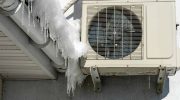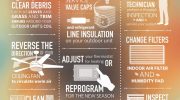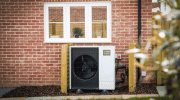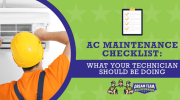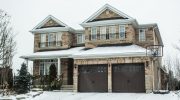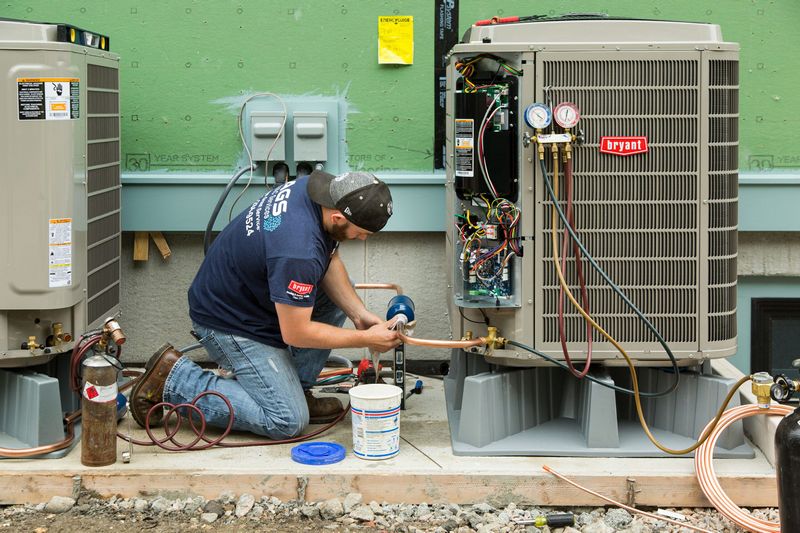
Buying a Home With Older HVAC Systems
Welcome to Website Name, where we provide expert guidance on buying a home with older HVAC systems. Purchasing a house is an exciting milestone, but it is essential to thoroughly evaluate the home’s heating, ventilation, and air conditioning (HVAC) system, especially if it is older. Here are some valuable tips to consider before making your decision.
1. Conduct a thorough inspection
Before finalizing the purchase, it is crucial to enlist the help of a professional to inspect the HVAC system. Older systems may have hidden issues or be in need of repairs. This examination will give you a better understanding of the system’s condition, potential costs for repairs or upgrades, and overall lifespan.
2. Assess the energy efficiency
Older HVAC systems tend to be less energy-efficient compared to newer models. This inefficiency can lead to higher utility bills and decreased comfort in your home. Consider consulting an HVAC specialist to determine the system’s energy efficiency rating and potential cost savings that may result from upgrading to a more efficient model.
3. Research spare parts availability
Another important aspect to consider when buying a home with an older HVAC system is the availability of spare parts. Older systems may require specific components that are no longer manufactured or readily available. Researching the availability and cost of spare parts can help you make an informed decision about the long-term maintenance and repair of the system.
4. Plan for future upgrades
An older HVAC system may not have all the features and technologies available in newer models. Consider your future needs and preferences when evaluating the system. If you anticipate wanting additional features or advancements, you may need to budget for future upgrades or replacements.
In conclusion, buying a home with an older HVAC system requires careful evaluation to ensure you understand its condition, efficiency, and potential costs. Consulting with professionals and conducting thorough research will help you make an informed decision and ensure your future comfort in your new home.
Remember, at Website Name, we are here to provide you with the guidance and expertise you need when considering a home with an older HVAC system. Feel free to explore our resources and reach out to us with any questions or concerns. Happy home buying!
Tips for Buying a Home With Older HVAC Systems
If you are looking to buy a new home, it is important to consider the condition of the HVAC system. Older HVAC systems can be expensive to repair or replace, so it’s important to know what you are getting into before making a purchase. Here are some tips to keep in mind when buying a home with older HVAC systems:
- Inspect the HVAC system: Before making an offer on a home, have a professional HVAC technician inspect the system. They can assess its condition and give you an idea of any potential repairs or replacements that may be needed.
- Consider the age: Find out how old the HVAC system is. Generally, systems that are over 15 years old are considered nearing the end of their lifespan. This could mean costly repairs or the need for a complete replacement in the near future.
- Look for signs of maintenance: Check if the HVAC system has been well-maintained over the years. Regular maintenance can extend the lifespan of the system and help prevent major issues. Look for service records or signs of recent maintenance, such as clean filters or new parts.
- Budget for repairs or replacements: If the HVAC system is older and in need of repairs or replacement, factor in the cost when considering your budget for the home. HVAC systems can be a significant expense, so it’s important to plan accordingly.
- Negotiate the price: If the HVAC system is older or in need of repairs, you may be able to negotiate the price of the home. Use the information gathered from the inspection and research to make a fair offer that accounts for the potential costs of the HVAC system.
Buying a home with an older HVAC system doesn’t have to be a deal-breaker, but it does require careful consideration. By following these tips, you can make an informed decision and ensure you are prepared for any potential costs or repairs down the line.
Assessing the HVAC System
When buying an older home, it’s important to assess the HVAC system to ensure it is in good working condition. Here are some key factors to consider:
- Age: Determine the age of the HVAC system. Older systems may require more frequent repairs and maintenance.
- Energy Efficiency: Older systems may not be as energy-efficient as newer models. Consider the potential for higher utility bills.
- Wear and Tear: Inspect the system for any signs of wear and tear, such as rust, leaks, or unusual noises.
- Maintenance Records: Request maintenance records from the previous homeowner. This can help determine if the system has been properly maintained.
- Get an Inspection: Hire a professional HVAC inspector to thoroughly evaluate the system. They can identify any potential issues and provide an estimate for repairs or replacements.
- Consider Replacement: If the HVAC system is outdated or in poor condition, it may be more cost-effective to replace it with a newer, more efficient model.
- Budget for Repairs: Even if the HVAC system appears to be in good condition, it’s important to budget for future repairs or maintenance.
Assessing the HVAC system is an integral part of buying an older home. By considering these factors, you can make a more informed decision and ensure the comfort and efficiency of your home for years to come.
Efficient Energy Consumption
Save money and reduce your carbon footprint by ensuring efficient energy consumption in your home!
When buying a home with older HVAC systems, it’s important to consider the energy efficiency of the system. Upgrading to a more efficient system can save you money on your utility bills and help protect the environment. Here are some tips to help you make an informed decision:
- Check the Energy Efficiency Rating: Look for HVAC systems with a high SEER (Seasonal Energy Efficiency Ratio) rating. Higher SEER ratings indicate greater energy efficiency.
- Consider Energy Star Certification: Energy Star-certified systems meet strict energy efficiency guidelines set by the U.S. Environmental Protection Agency and can provide significant energy savings.
- Inspect the Ductwork: Make sure the ductwork in the home is properly sealed and insulated. Leaky ducts can waste a significant amount of energy.
- Upgrade to Smart Thermostats: Consider installing smart thermostats that can learn your schedule and adjust the temperature accordingly. This can help optimize energy usage and save you money.
- Regular Maintenance: Properly maintaining your HVAC system can help ensure its efficiency. Schedule regular maintenance checks and cleanings to keep your system running smoothly.
Remember, investing in an energy-efficient HVAC system for your new home not only helps you save on energy costs, but also contributes to a greener and more sustainable future.
For more information on efficient energy consumption and upgrading your HVAC system, contact us today!
Cost of Repairs and Upgrades
An older home with outdated HVAC systems may require repairs or upgrades to bring the system up to modern standards. These repairs and upgrades can vary significantly in cost depending on the specific system and the extent of the work needed.
Repairs:
- Fixing minor issues such as leaks, faulty wiring, or broken components can range from $100 to $500.
- Moderate repairs like replacing a compressor or motor can cost between $500 and $1,500.
- Major repairs like replacing an entire unit can cost anywhere from $1,500 to $4,000 or more.
Upgrades:
- Upgrading an older HVAC system to a more efficient model can result in long-term energy savings and improved comfort. The cost of upgrading can range from $2,000 to $10,000 or more, depending on the size and complexity of the system.
- Adding smart home technology, such as programmable thermostats or zoning systems, can increase convenience and energy efficiency. These upgrades may cost an additional $200 to $1,000.
It’s important to factor in the potential cost of repairs and upgrades when considering the purchase of a home with older HVAC systems. Consulting with a professional HVAC technician can provide a more accurate estimate of the specific costs involved.
Lifespan of the HVAC System
When buying an older home, it’s important to consider the lifespan of the HVAC system. The HVAC system, which stands for heating, ventilation, and air conditioning, is a crucial component of any home’s comfort and functionality.
On average, an HVAC system can last for about 15 to 20 years. However, this lifespan can vary depending on various factors such as the brand, maintenance, and usage. Older homes may have HVAC systems that are nearing the end of their lifespan, so it’s essential to inspect and evaluate the condition of the system before making a purchase.
Here are a few signs that indicate the HVAC system may need replacement:
- Constant repairs: If the HVAC system has been requiring frequent repairs, it may be a sign of its declining condition.
- Inconsistent temperature: If the home experiences inconsistent temperatures or some rooms are too hot or too cold, the HVAC system might be struggling to distribute air properly.
- Unusual sounds or odors: Strange noises or unpleasant smells coming from the HVAC system could indicate mechanical issues or mold growth.
Buying a home with an older HVAC system doesn’t necessarily mean you should walk away from the deal. It’s important to get a professional inspection and assess the potential costs of replacing or repairing the system. Consider negotiating with the seller to account for the age and condition of the HVAC system in the final price.
Remember, an older HVAC system may still have some life left in it if it has been well-maintained. Regular maintenance, such as changing air filters, cleaning ducts, and scheduling professional tune-ups, can help extend the lifespan of the system. Ultimately, investing in a new HVAC system can provide long-term benefits in terms of energy efficiency, improved indoor air quality, and overall home comfort.
Potential Safety Hazards
When buying a home with older HVAC systems, it’s important to be aware of potential safety hazards. These hazards can pose a risk to the occupants of the home and should be addressed before purchasing the property.
- Carbon Monoxide Leaks: Older HVAC systems may be more prone to carbon monoxide leaks, which can be extremely dangerous. It’s important to have the system inspected and tested for leaks before moving in.
- Fire Hazards: Older HVAC systems may have outdated wiring or faulty components that can increase the risk of electrical fires. It’s essential to have the system inspected by a qualified professional to ensure it meets safety standards.
- Poor Indoor Air Quality: Older HVAC systems may not effectively filter or ventilate the air, leading to poor indoor air quality. This can be particularly concerning for individuals with respiratory issues or allergies. Consider investing in additional air purifiers or improving the HVAC system’s filtration capabilities.
- Malfunctioning Thermostats: Older thermostats may be inaccurate or unreliable, causing temperature fluctuations and discomfort. It’s worth considering upgrading to a modern thermostat for better control and energy efficiency.
- Potential Mold Growth: Older HVAC systems that have not been properly maintained or have leaks can contribute to the growth of mold within the home. Mold can pose significant health risks and should be addressed promptly.
Before purchasing a home with older HVAC systems, it’s crucial to have a professional inspection performed. They can identify any potential safety hazards and provide recommendations for necessary repairs or upgrades. Don’t overlook the importance of HVAC system safety when considering a home purchase.
Available Warranty
Are you concerned about purchasing a home with an older HVAC system? Don’t worry! Our Available Warranty plan has got you covered.
With an older HVAC system, it’s important to have a warranty that not only helps protect your investment but also provides peace of mind. Our Available Warranty plan offers comprehensive coverage for all components of your HVAC system, including the furnace and air conditioner.
Here are some key features of our Available Warranty plan:
- Extended Coverage: Our warranty covers the repair and replacement of major components and parts, helping to extend the lifespan of your HVAC system.
- 24/7 Customer Support: We understand that HVAC emergencies can happen at any time. That’s why our customer support team is available 24/7 to assist you with any issues or concerns.
- Qualified Technicians: Our network of qualified technicians ensures that your HVAC system is in good hands. They have the skills and expertise to diagnose and repair any issues that may arise.
- No Deductibles: With our Available Warranty plan, there are no deductibles or out-of-pocket expenses for covered repairs or replacements.
- Transferable: If you decide to sell your home, our Available Warranty plan is transferable to the new homeowner, providing added value and peace of mind.
Investing in an older home with an aging HVAC system doesn’t have to be a gamble. With our Available Warranty plan, you can buy with confidence, knowing that you have the support and protection you need.
Contact us today to learn more about our Available Warranty and how it can benefit you when buying a home with an older HVAC system.
Maintenance History
When buying a home with older HVAC systems, it is crucial to have access to the maintenance history. The condition of the HVAC system can greatly impact the comfort and energy efficiency of your new home. Here are a few key steps to take when reviewing the maintenance history of the HVAC system:
- Check for regular maintenance: Look for records of regular maintenance, such as annual inspections and tune-ups. Regular maintenance indicates that the previous owner took good care of the system, which can extend its lifespan.
- Inspect repairs and replacements: Review any records of repairs or replacements that have been done on the HVAC system. Look for indications that the repairs were done by a professional and that any faulty or outdated parts were replaced.
- Consider the age of the system: Take note of the age of the HVAC system and compare it to the expected lifespan of the particular make and model. Older systems may require more frequent repairs and may be less energy efficient.
- Ask about any ongoing issues: Inquire about any ongoing issues or recurring problems that the previous owner experienced with the HVAC system. This can give you an idea of potential future expenses or maintenance needs.
Having access to the maintenance history of the HVAC system is essential when buying a home with older systems. It can help you make an informed decision and negotiate the price if any repairs or upgrades are needed. Remember to consult with a professional HVAC technician to thoroughly inspect the system before making a final decision.
HVAC System Inspection
Are you buying an older home with an older HVAC system? Don’t make a purchase without first getting an HVAC system inspection!
Why should you get an HVAC system inspection?
- An older HVAC system may have hidden issues that could be costly to repair or replace.
- An inspection can help identify any potential problems or safety concerns.
- Knowing the condition of the HVAC system can provide leverage for negotiating a better price.
What does an HVAC system inspection include?
- A thorough examination of the HVAC unit, including the furnace, air conditioner, and heat pump.
- An evaluation of the system’s performance and efficiency.
- Checking for any signs of wear and tear or potential problems.
- Testing the thermostat and controls.
- Inspecting the ductwork for leaks or damage.
Who should you hire for an HVAC system inspection?
We recommend hiring a licensed and experienced HVAC technician to perform the inspection. They have the knowledge and expertise to identify any issues and provide you with an accurate assessment.
How much does an HVAC system inspection cost?
The cost of an HVAC system inspection can vary depending on the location and the size of the system. On average, you can expect to pay between $100 and $250 for an inspection.
Don’t take chances with an older HVAC system when buying a home. Get an HVAC system inspection and make an informed decision.
Contact us today to schedule an HVAC system inspection and ensure peace of mind in your home buying process!
Professional Advice and Opinion
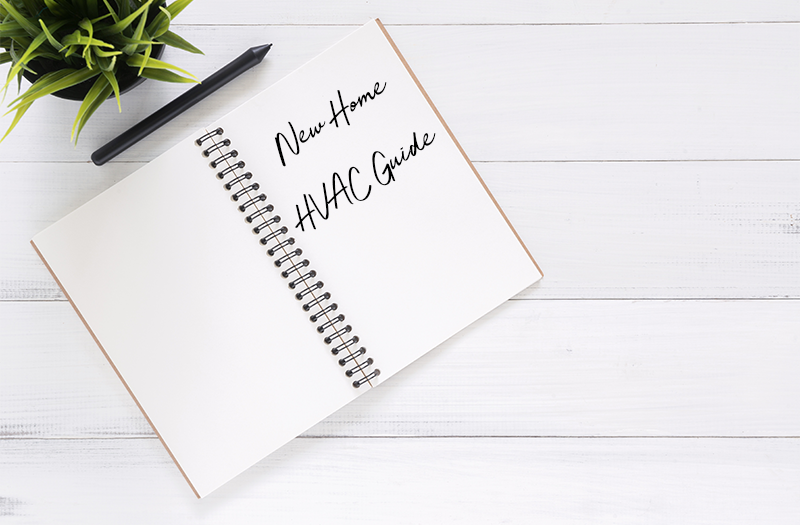
When buying a home with older HVAC systems, it’s important to seek professional advice and opinion to make an informed decision. Older HVAC systems may have various issues, such as reduced efficiency, increased energy consumption, or potential repairs.
By consulting with professionals in the HVAC industry, you can get an expert evaluation of the system’s condition and potential costs. They can provide you with recommendations on whether the system needs to be repaired, upgraded, or replaced.
Professional advice and opinion are valuable because they can help you assess the long-term implications of buying a home with older HVAC systems. They can also guide you on how to negotiate the purchase price with the seller, considering the potential costs of system repairs or replacements.
Additionally, professionals can offer insights on the available options for upgrading your HVAC system to a more energy-efficient and cost-effective model. They can help you select a system that suits your needs and budget, ensuring optimal comfort and savings in the long run.
In summary, seeking professional advice and opinion when buying a home with older HVAC systems is essential. It can provide you with valuable insights, help you make an informed decision, and potentially save you from unexpected expenses in the future.
Heating and Cooling Capacity
When buying a home with older HVAC systems, it’s important to consider the heating and cooling capacity of the system. HVAC stands for heating, ventilation, and air conditioning, and these systems are responsible for maintaining a comfortable temperature and indoor air quality. Here are some key points to consider:
- Assess the age of the HVAC system: Older HVAC systems may have a lower heating and cooling capacity compared to newer models. It’s important to determine the age of the system and consider its efficiency in terms of energy consumption.
- Check for sufficient BTU capacity: BTU (British Thermal Units) is the measure of heating and cooling capacity. Make sure that the HVAC system has sufficient BTU capacity to adequately heat or cool the home, depending on your climate.
- Consider additional HVAC units: If the existing HVAC system has a lower capacity, you may need to consider installing additional units to ensure proper heating and cooling throughout the home.
- Look for energy-efficient options: If the current HVAC system is outdated, it may be worth investing in an energy-efficient upgrade. Look for systems with high SEER (Seasonal Energy Efficiency Ratio) ratings, which indicate lower energy consumption and higher efficiency.
Overall, it’s important to carefully evaluate the heating and cooling capacity of older HVAC systems when buying a home. Consider consulting with an HVAC professional to assess the system’s efficiency and determine if any upgrades or modifications are necessary.
Air Quality and Filtration
Homes with older HVAC systems may have a higher risk of poor air quality. Dust, allergens, and other airborne pollutants can accumulate in the ducts and filters, leading to respiratory issues and discomfort for you and your family. It is crucial to prioritize air quality and filtration when buying a home with older HVAC systems.
Here are some tips to improve air quality:
- Change Filters Regularly: Make sure to change your air filters regularly to prevent the build-up of dust and allergens. Consider using high-efficiency filters for better filtration.
- Clean Air Ducts: Hire a professional to clean and inspect the air ducts in your home. This will help remove any accumulated dirt, dust, or contaminants.
- Invest in Air Purifiers: Consider investing in air purifiers with HEPA filters to further improve air quality and reduce allergens.
- Maintain Proper Ventilation: Ensure your home has proper ventilation by opening windows when weather permits or using exhaust fans in areas prone to moisture, such as the kitchen and bathroom.
- Consider HVAC Upgrades: If your older HVAC system cannot effectively filter the air, consider upgrading to a more advanced system that offers better filtration options.
By taking these steps, you can significantly improve the air quality in your home and create a healthier living environment for you and your loved ones, even with an older HVAC system.
Interested in learning more about air quality and filtration for homes with older HVAC systems? Contact our experts today!
| Phone: 123-456-7890 |
| Email: [email protected] |
Energy Efficiency Ratings
When buying a home with older HVAC systems, it is important to consider the energy efficiency ratings of the system. Energy efficiency ratings indicate how well the system uses energy and can help you determine the potential cost of operating the system.
Factors to consider when looking at energy efficiency ratings:
- SEER rating: The Seasonal Energy Efficiency Ratio (SEER) measures the cooling efficiency of the system. The higher the SEER rating, the more energy-efficient the system is.
- HSPF rating: The Heating Seasonal Performance Factor (HSPF) measures the heating efficiency of the system. Similar to the SEER rating, a higher HSPF rating indicates greater energy efficiency.
- Average Annual Fuel Utilization Efficiency (AFUE) rating: This rating is specific to furnace systems and measures how efficiently the furnace converts fuel into heat. Look for a higher AFUE rating to ensure energy efficiency.
Upgrading to a more energy-efficient HVAC system can lead to significant cost savings on your energy bills. Additionally, some utility companies offer rebates or incentives for installing energy-efficient systems, which can help offset the initial cost of the upgrade.
Consulting with a professional:
When considering an older HVAC system, it is a good idea to consult with a professional HVAC technician. They can assess the system’s overall condition and provide insights into its potential energy efficiency. They may also be able to recommend upgrades or maintenance to improve its efficiency.
|
Conclusion:
Although older HVAC systems may not have the same energy efficiency ratings as newer models, it is still possible to make informed decisions when buying a home. Understanding energy efficiency ratings and considering potential upgrades can help you make a more educated choice and potentially save money in the long run.
Ductwork Condition
When buying a home with an older HVAC system, it’s important to assess the condition of the ductwork. The ductwork plays a crucial role in distributing the heated or cooled air throughout your home, so any issues can impact the system’s efficiency and your comfort.
Here are some key factors to consider when evaluating the ductwork condition:
- Air leakage: Inspect the ducts for any visible signs of air leaks, such as loose connections or gaps. Air leakage can lead to energy wastage and uneven heating or cooling in different rooms.
- Insulation: Check if the ductwork is properly insulated. Poor insulation can cause heat loss or gain, resulting in higher energy bills and reduced comfort.
- Obstructions: Look out for any obstructions in the ductwork, such as debris, dust, or even pests. These blockages can restrict airflow and affect the system’s performance.
- Corrosion or damage: Check for signs of corrosion or damage to the ductwork. Corroded ducts can develop leaks or even collapse, while damaged ducts may not be able to deliver air efficiently.
It’s recommended to hire a professional HVAC technician to inspect the ductwork thoroughly before making a final decision. They have the expertise and tools to identify potential issues that may not be immediately evident. Additionally, they can provide an estimate for any necessary repairs or replacements.
Keep in mind that ductwork repairs or replacements can add extra costs to your home-buying budget. However, by addressing any problems early on, you can ensure a comfortable living environment and improve the overall efficiency of your HVAC system.
Financing Options
When buying a home with older HVAC systems, it’s important to consider the cost of potential HVAC repairs or replacements. Financing options can be a helpful solution to ensure you can afford the necessary upgrades to the system.
- HVAC Financing Programs: Many HVAC companies offer financing programs specifically designed for purchasing new systems or making repairs. These programs often have low interest rates and flexible payment terms, making it easier to manage the cost of buying a home with older HVAC systems.
- Home Improvement Loans: Another financing option is to apply for a home improvement loan. These loans can be used for various home upgrades, including HVAC systems. They typically have competitive interest rates and allow you to spread the cost of the system over several years.
- Energy Efficiency Loans: If you’re looking to invest in an energy-efficient HVAC system, you may be eligible for an energy efficiency loan. These loans are specifically designed to encourage homeowners to make energy-saving improvements, such as upgrading to more efficient HVAC systems. They often offer lower interest rates and longer repayment terms.
- Government Grants and Incentives: Depending on your location, there may be government grants or incentives available to help offset the cost of upgrading your HVAC system. These programs vary by region, so it’s worth researching what options are available in your area.
Before making a decision, it’s important to carefully review and compare the financing options available to you. Consider factors such as interest rates, repayment terms, and any associated fees. By choosing the right financing option, you can ensure that buying a home with older HVAC systems doesn’t become a financial burden.
Question-answer:
Is it a good idea to buy a home with an older HVAC system?
Buying a home with an older HVAC system can have pros and cons. On one hand, you may be able to negotiate a better price for the home since the HVAC system is older. On the other hand, you may need to invest in repairs or even replacement sooner rather than later. It’s important to have the HVAC system inspected by a professional before making a decision.
What are some signs that an older HVAC system may need repairs or replacement?
There are several signs that an older HVAC system may need repairs or replacement. These include frequent breakdowns, uneven heating or cooling, strange noises or smells, and unusually high energy bills. If you notice any of these signs, it’s a good idea to have a professional HVAC technician take a look at the system.
How can I determine the age of an HVAC system in a home?
There are a few ways to determine the age of an HVAC system in a home. The first is to look for a manufacturer’s label on the unit that indicates the year it was made. Another way is to ask the seller or real estate agent for information about the system’s age. Additionally, an HVAC technician can often provide an estimate of the system’s age based on its condition and features.
Should I budget for repairs or replacement if I buy a home with an older HVAC system?
It’s always a good idea to budget for potential repairs or replacement if you buy a home with an older HVAC system. While the system may be functioning fine at the moment, it’s likely to require maintenance or repairs in the future. Depending on the age and condition of the system, you may need to replace it sooner rather than later. Having some funds set aside can help you cover these expenses.
What are some tips for maintaining an older HVAC system?
Maintaining an older HVAC system is important in order to prolong its lifespan and keep it working efficiently. Some tips for maintaining an older system include changing the air filters regularly, scheduling annual HVAC inspections and tune-ups, keeping the outdoor unit free of debris, and ensuring proper airflow by keeping vents and registers clean and unobstructed. Regular maintenance can help prevent costly repairs and ensure the system functions properly.
What should I look for when buying a home with an older HVAC system?
When buying a home with an older HVAC system, there are several things you should look for. First, check the age of the system. If it’s nearing the end of its lifespan, you may need to budget for a replacement in the near future. Second, ask for maintenance records to ensure that the system has been properly cared for. Lastly, consider getting a professional home inspection to assess the overall condition of the HVAC system and identify any potential issues.


